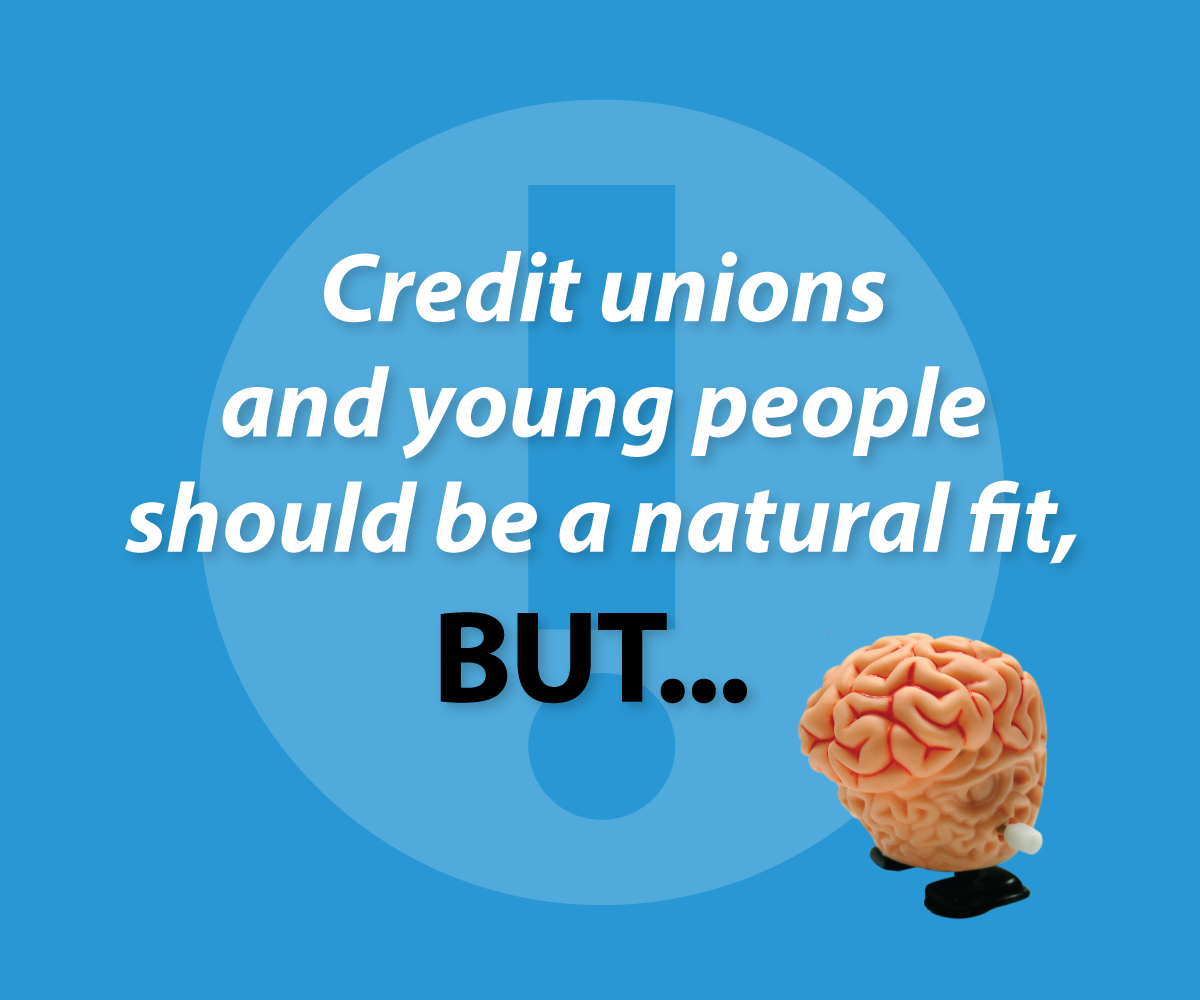
What young people actually want (part 2)
A few weeks ago I started asking the young people I know about the things they want from a financial institution. I received a flood of opinions and wrote up some of their main ideas, but now it’s time to get specific: Credit unions have an awareness problem, particularly with young people.
Credit unions and young people should be a natural fit. Credit union priorities and values mesh incredibly well with the hot-button issues for Millennials and Gen-Z. But well, there are several reasons why young people might not be aware that this is the case…
Young people aren’t aware of credit unions
Awareness is an age-old credit union problem, and this continues to be the case with Millennials and Gen-Z. A lot of young people end up staying with their parents’ financial institution, at least until they make a big move like getting married, having kids or buying a house. For example, I talked to a bright young med student about credit unions and he said…
“Tell them I don’t even know what they are.” – Nathan
Let’s be clear: He has heard of credit unions before. He doesn’t live under a rock. He just doesn’t know the difference between credit unions and banks, and he’s a med student for Pete’s sake!
I can’t stress this enough: nearly every young person I spoke with said they get a majority of their financial advice from a parent. This means that until you get your message out in front of these young folks and show them why you’re different, they’re going to go with what they already know.
If you have trouble reaching millennials and young people in general, get through to their parents. Telling a parent you can help them help their kid live a better life is an incredibly powerful message, and still not one we see much of.
Millennials, in particular, really don’t like banks
One of the main draws of joining a credit union is that it is not a bank. A credit union doesn’t work like a bank, they don’t have to worry about shareholders the way a bank does, and they prioritize their members over profit.
“I wanted to bank with a credit union because they seem like they are run by real people, instead of corporate overlords.” – Austin
There’s a good reason for this bias. Young people associate big banks with predatory practices, endless corporate bailouts, and the 2008 economic crisis. Big banks get a bad rap, but a lot of young people don’t see another option.
“As a young person I want to feel my bank isn’t a corporation.” – Morgan
So credit unions should be the obvious option, right? Well, you’re fighting that awareness issue again. Furthermore, this is where your reputation really comes into play.
What you need to ask yourself is: Are you different? (i.e. Do you act like a bank?)
Young people know big bank behavior, and they hate it
It doesn’t matter if you are a credit union if you act like a bank. For example, almost every single interviewee said something negative about financial institutions’ hidden fees.
“No fees, or at least transparent fees. TELL ME IF I’M GOING TO OVERDRAW.” – Lily
Remember, when people use caps on the internet it means they’re yelling. Unlike their parents, millennials understand this rule, so I can confidently say she was yelling on purpose.
“Don’t charge me if I don’t have direct deposit, or a holding fee.” – Marie
When you add on hidden fees, or don’t at least give people the option to opt-out, you look predatory. People start to feel like you’re more interested in the money than the person.
“Don’t charge me to withdraw money from my own account.Don’t charge me for not having money.” – Sarah
For millennials, who are systematically underpaid and over-indebted, the greedy money-grabbing happens every time they turn around. It’s almost worse when you fake it and pay lip service to ethical practice while loading your services up with hidden fees. It feels like a betrayal.
“Some banks make you pay monthly for a checking account which is ridiculous. I’ve always avoided those banks and greatly wondered who uses them.” – Austin
The message is pretty clear. Be transparent, try to avoid unnecessary fees, and explain why certain fees do exist. Keep your members in the loop to avoid that “us vs. them” mentality.
“No monthly charges.” – Billy
And in case you think I’m exaggerating, you should reread the quotes above. I received a wide variety of responses from the people I spoke with, but not when it came to charges and fees.
So maybe it’s time to rethink how you handle your fees. Make sure your members know what they’re getting into, and don’t just list it in the fine print. You can’t fight the awareness issue if everyone thinks you’re acting just like a big bank.
- New home buyers need a budgeting coach - July 8, 2025
- Fabulous FREE stuff for credit unions - June 10, 2025
- Are your online mortgage loan tools actually helpful? - May 6, 2025
